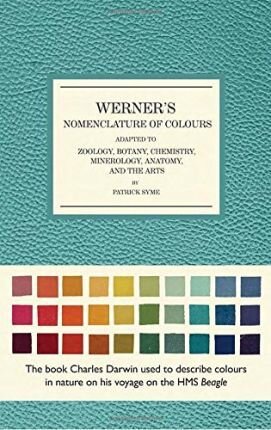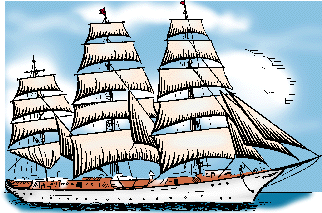EPISODE 112 FEATURES CARRY SOMERS
Following on from last week’s Episode with Emily Penn, this one features one of eXXpedition’s crew members, who just happens to be the co-founder of Fashion Revolution. Regular listeners will know that Wardrobe Crisis is good friends with Fash Rev - and previous Episodes have featured Carry’s cofounder Orsola de Castro and Fashion Revolution’s Global Policy boss Sarah Ditty. Definitely worth a re-listen as Fashion Revolution Week approaches in April.
Carry Somers is a British fashion designer and social entrepreneur. She co-founded Fashion Revolution in 2013 in response to the Rana Plaza factory collapse. Her fair trade brand Pachacuti is known for its beautiful Panama hats. In February 2020, Carry sailed on eXXpedition’s leg 7, from Galapagos to Easter Island. Her mission? To focus on the link between fashion and microplastic pollution.
NOTES
The Staffordshire town of LEEK has a rich textiles tradition. The town’s silk industry developed in the earlier 19th century, when the first mills were established. A dyeworks was opened at Leekbrook in 1830 by Joshua Wardle. The great William Morris studied dyeing with Wardle, and the town became a focus for the Arts and Crafts Movement. Read about its history and the industrialist who kicked it all off, here.
The other books Carry mentions are: Werner’s Nomenclature of Colours - a taxonomic guide to the colours of the natural world that has been cherished by artists and scientists for more than two centuries. The Oxford Book of the Sea, edited Jonathan Raban, is a collection of writings about the sea - “not,” as one Amazon review points out, “about voyages or naval battles, or fishing or swimming, but rather passages that define the water itself. Open the book to any page and you'll find descriptions of the sea in all its infinite variability.”
Alexander von HUMBOLDT was a Prussian explorer and natural history buff. “Between 1799 and 1804, he travelled extensively in the Americas and his accounts of these journeys were published in an enormous set of volumes over 21 years. Humboldt was one of the first people to propose that the lands bordering the Atlantic Ocean were once joined (South America and Africa in particular). Humboldt resurrected the use of the word cosmos from the ancient Greek and assigned it to his multivolume treatise, Kosmos, in which he sought to unify diverse branches of scientific knowledge and culture. This important work also motivated a holistic perception of the universe as one interacting entity. He was the first person to describe the phenomenon and cause of human-induced climate change, in 1800 and again in 1831, based on observations generated during his travels.” via Wikipedia. Read his entry in the Encyclopaedia Britannica here. Oh, and this is the penguin named after him.
Charles DARWIN was, of course, the English naturalist whose scientific theory of evolution by natural selection became the foundation of modern evolutionary studies.
The GALAPAGOS islands are 1000 ks off the coast of Ecuador. “They are home to an amazing array of unique animal species: giant tortoises, iguanas, fur seals, sea lions, sharks, rays, and 26 species of native birds – 14 of which make up the group known as Darwin’s finches. These finches are considered to be the world’s fastest-evolving vertebrates because their appearance and behavior quickly adapted to this closed and rapidly changing environment.” Via Earthwatch.org
On the land, an amazing diversity of species have adapted to the local conditions. In addition to Darwin’s finches, there are giant tortoises and spectacular songbirds such as the vermillion flycatcher. The plants are just as interesting. In the highlands, you can see trees that evolved from daisies and are covered in colorful mosses and lichens, while in the lowlands there are many cacti.
Darwin's Finches Diagram, National Geographic Society
J-CLASS YACHTS are single-masted racing sailboats built to the specifications of Nathanael Herreshoff's Universal Rule. They’re considered the peak racers of the era when the Universal Rule determined eligibility in the America's Cup. The J-class yacht VELSHEDA was designed by Charles Ernest Nicholson and built in 1933 by Camper and Nicholsons at Gosport, Hampshire. SQUARE RIGGERS have a generic type of sail and rigging arrangement in which the primary driving sails are carried on horizontal spars which are perpendicular, or square, to the keel of the vessel and to the masts.
RIGHTS OF NATURE. In 2008, Ecuador became the first country to legally recognise the rights of nature and two years later Bolivia adopted the Law of the Rights of Mother Earth. This means in practice that people can now sue on behalf of the ecosystem.
SUMAK KAWSAY is the Andean concept of good living: a way of life that is community-centric, ecologically-balanced and culturally-sensitive. More here.
AYNI can refer to either the concept of reciprocity or mutualism among people of the Andean mountain communities or the practice of this concept. As a noun, the law of ayni states that everything in the world is connected, and is the only commandment that rules daily life in many communities like the Q'ero.
PACHAMAMA is Mother Earth.
ECOSEMIOTICS is a branch of semiotics in its intersection with human ecology, ecological anthropology and ecocriticism.
MICROFIBRES “Around 63 % of our clothing is made from synthetics,” says Carry. “[And] 34.8% of micro-plastics in the sea come from fibres.”
You can read the 2019 FASHION TRANSPARENCY REPORT here. It reveals that very few brands are taking steps to reduce virgin plastics. “Only 15% [of the 200 brands included in the report] had any measurable time-bound targets to reduce virgin plastics - that’s both within their packaging and in the materials used to make their clothing,” says Carry. “We also see a real disconnect between brands saying they’re going to do something, and what they’re actually doing. So we have 43% of brands who are publishing a sustainable materials strategy but actually only 29% who are disclosing the % of their products which are made from more sustainable materials. So how do we know brands are actually acting on that? We need to see brands reporting more concretely on the measure they are taking and reporting on the progress made towards those goals on an annual basis.”
LOW TEMPERATURES ON A SHORT CYCLES Are they best to keep shedding to a minimum? Carry mentions 20 degrees, 30-minute cycle. Even 25 degrees helps, according to this recent study by researchers at the University of Leeds.
PLASTICS EMIT GREENHOUSE GASES AS THEY DEGRADE according to researchers from University of Hawaii at Manoa. Researchers have found that several greenhouse gases are emitted as common plastics degrade in the environment. Their study reports the unexpected discovery of the universal production of greenhouse gases methane and ethylene by the most common plastics when exposed to sunlight. Read more here.
PANAMA HATS are named after their main trading route, but they come from ECUADOR. Carry mentions that they were mislabelled at the World’s Fair in Paris in 1855 - more here.
Carry’s brand PACHACUTI was founded in 1992, 500 years after Columbus first arrived in the Americas. The name means “world upside-down” or “turning the world around” in the Quechua language. (pacha = world, time and space) and (cuti =change, turn, coming back on oneself). The company’s fine hat weaves here, and find out how they make them below:
For more on the FAIR TRADE PRINCIPALS go back to Episode 54 with Safia Minney. Pachacuti was the first company to be World Fair Trade Certified. GEO-MAPPING They’ve mapped the GPS coordinates of all their weavers, as well as the associations that process the straw and the cloud forests where its grown.
FOUNDING FASH REV The full story is detailed in Chapter 4 of Clare’s book, Rise & Resist, How to change the world.
Image from Pachacuti
MUSIC is by Montaigne, who sang this special acoustic version of “Because I love You” from her album Glorious Heights, just for us.
Can you help us grow? Tell your friends about Wardrobe Crisis, or leave a review in your favourite podcast app.
Clare & the Wardrobe Crisis team x










